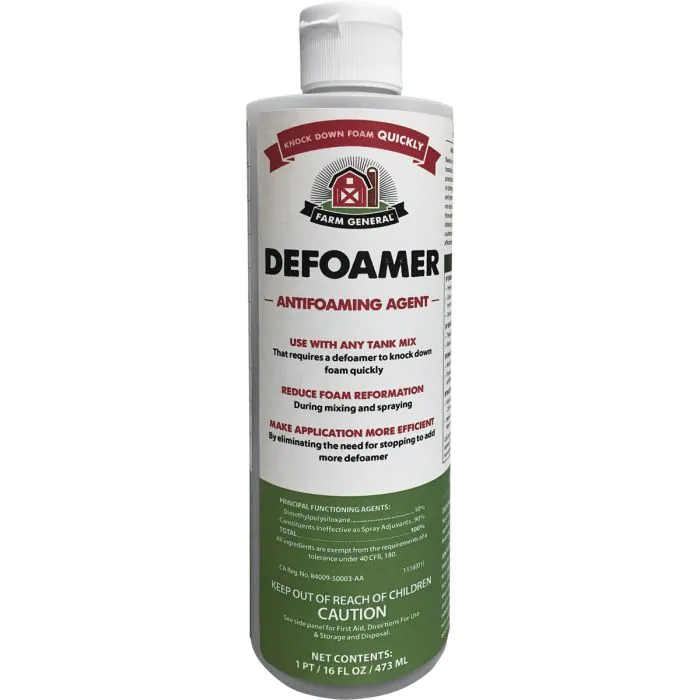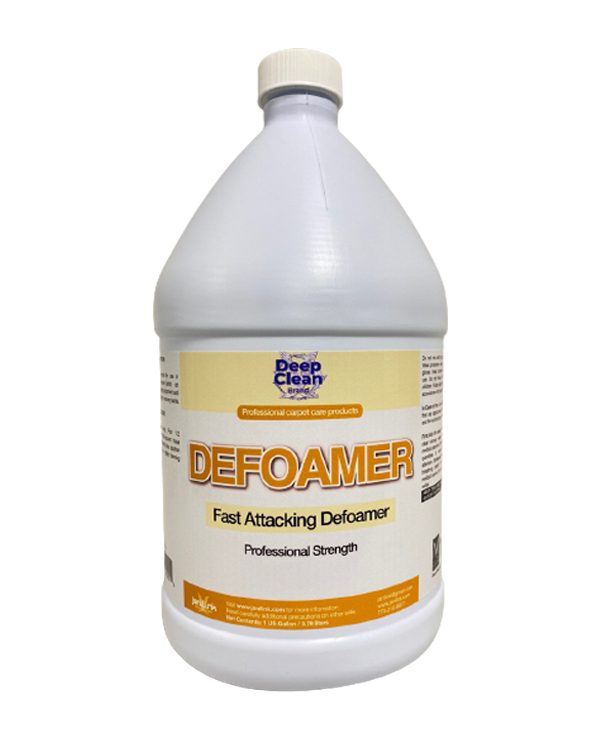The Importance of Chemical Defoamer in Sewage Treatment
The Importance of Chemical Defoamer in Sewage Treatment
Blog Article
The Value of Using a Chemical Defoamer in Various Applications
The application of chemical defoamers is an important factor to consider throughout numerous industries, including food handling, wastewater treatment, and pharmaceuticals. These agents play a critical function in mitigating foam development, which can impede effectiveness and concession product high quality. The benefits of making use of defoamers extend beyond mere looks; they are vital for accomplishing compliance with sector standards and boosting functional procedures. The devices by which defoamers work and their details applications raise further inquiries concerning their general impact and performance in these varied contexts. What insights can be uncovered about their use?
Recognizing Foam Development
Foam development is an intricate physical sensation that happens when gas bubbles are caught within a liquid matrix, leading to the creation of a secure framework. This procedure can be affected by various variables, including the thickness of the fluid, the surface area tension at the gas-liquid user interface, and the existence of surfactants. Surfactants lower the surface area stress, promoting bubble production and stablizing, which commonly causes the formation of foam in many industrial procedures.
Foams are frequently experienced in applications such as food production, wastewater therapy, and chemical manufacturing. In these contexts, foam can act as an insulator, hinder mixing procedures, or hinder the efficiency of devices. The security of foam is identified by the balance in between the pressures acting to support the bubbles and those that advertise their collapse.
Understanding the auto mechanics of foam formation is crucial for successfully managing its existence in numerous systems. By understanding the underlying principles, markets can design techniques to minimize unwanted frothing, thereby improving functional efficiency and product high quality. This foundational understanding acts as a forerunner to exploring the utility of chemical defoamers, which particularly address foam-related difficulties in many applications.
Advantages of Chemical Defoamers
Chemical defoamers provide significant benefits across various markets by successfully regulating and reducing foam formation. One of the main benefits is improved operational performance. By reducing foam, chemical defoamers assist preserve optimum manufacturing prices and lower downtime related to foam management. This is particularly important in procedures where too much foam can impede equipment or disrupt process.
In addition, chemical defoamers add to boosted product high quality. Lathering commonly causes variances in formulas, which can detrimentally impact the end product. By regulating foam degrees, defoamers make sure harmony, thereby boosting the general quality of the output.
Cost-effectiveness is one more significant advantage (Chemical Defoamer). By reducing the amount of basic materials required for manufacturing and lowering waste, chemical defoamers can bring about considerable savings. In addition, they usually enable lowered energy consumption, as procedures can run extra efficiently and require much less intervention.
Applications in Food Handling
In the food processing sector, efficient monitoring of foam is important to ensure both item quality and functional efficiency. Foam can conflict with numerous procedures, from blending and blending to packaging, leading to reduced returns more and potential contamination. Chemical defoamers play a crucial role in alleviating these issues by swiftly breaking down foam, enabling for smoother procedures and improved product consistency.
In applications such as milk processing, defoamers stop excess foam formation during the manufacturing of yogurt, cheese, and milk, which can disrupt equipment and influence the texture of the end product. In developing and fermentation processes, foam control is vital to preserve the stability of the drink and guarantee optimal fermentation prices.
Additionally, chemical defoamers are used in food sauces, emulsions, and dressings to improve the stability and appearance of the final items. By decreasing foam throughout manufacturing, makers can achieve better mixing and go to the website dispersion of ingredients, leading to remarkable top quality. On the whole, the incorporation of chemical defoamers in food processing is important for preserving effectiveness, high quality, and security in food production.
Function in Wastewater Treatment
Effective foam management is just as important in wastewater treatment processes, where excessive foam can prevent procedures and complicate the therapy of effluents. In lots of wastewater treatment centers, foam can form as a result of biological task, surfactants, or various other natural materials present in the influent. This foam can result in a series of operational challenges, including lowered treatment efficiency, raised upkeep demands, and prospective regulatory conformity issues.
Chemical defoamers play a vital function in reducing these challenges. By minimizing the surface tension of the liquid, defoamers advertise the collapse of foam structures, hence promoting smoother procedure of devices such as aeration containers and clarifiers. Their timely application aids maintain ideal hydraulic conditions, improving the total effectiveness of solids splitting up procedures.

Impact on Pharmaceutical Production
Foam control is crucial in pharmaceutical look what i found production, where the visibility of extreme foam can interrupt making procedures and compromise item top quality (Chemical Defoamer). The development of foam throughout numerous phases, such as blending, blending, and fermentation, can lead to ineffective blending, insufficient warm transfer, and even tools damage. These problems not only result in functional hold-ups yet can additionally create considerable economic losses and influence conformity with rigid regulative requirements
Chemical defoamers are specifically developed to alleviate these difficulties. By efficiently decreasing foam development, they enhance process performance and keep the stability of the final item. Specifically, defoamers make sure constant dosage kinds, enhance the stability of suspensions and emulsions, and simplify cleaning procedures by protecting against foam build-up in equipment.
In addition, using defoamers can maximize the yield of energetic pharmaceutical components (APIs) by promoting much better extraction and purification processes. As pharmaceutical companies make every effort to improve item top quality while minimizing manufacturing costs, the duty of chemical defoamers becomes significantly important - Chemical Defoamer. Their unification right into producing methods not only sustains compliance with Great Production Practices (GMP) however also promotes innovation and competitiveness in a quickly evolving market

Final Thought

Chemical defoamers supply considerable benefits across numerous industries by properly reducing and managing foam development. By minimizing foam, chemical defoamers assist maintain optimal manufacturing prices and decrease downtime linked with foam management. Chemical defoamers play an essential duty in alleviating these issues by swiftly damaging down foam, allowing for smoother operations and enhanced item uniformity.
Effective foam administration is equally essential in wastewater therapy processes, where too much foam can prevent operations and complicate the therapy of effluents.Foam control is crucial in pharmaceutical manufacturing, where the presence of excessive foam can disrupt making processes and compromise item quality.
Report this page